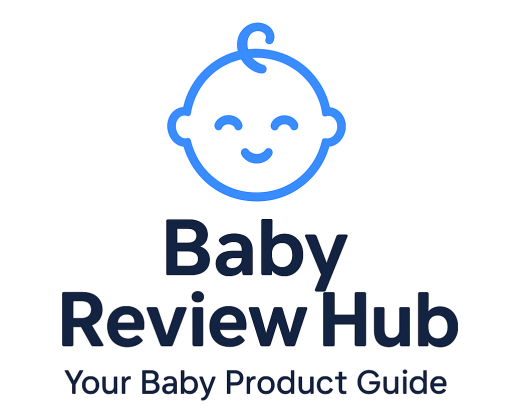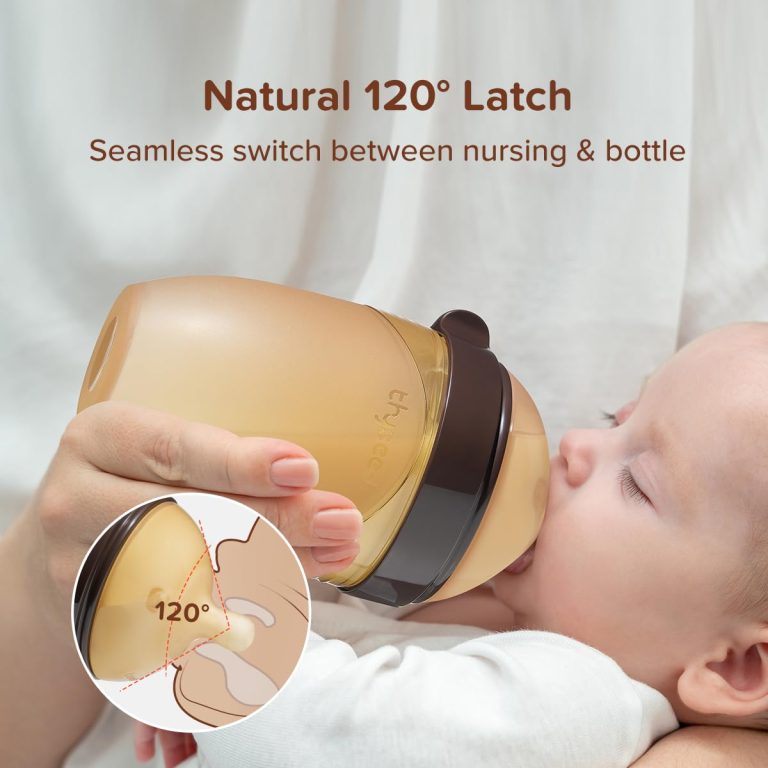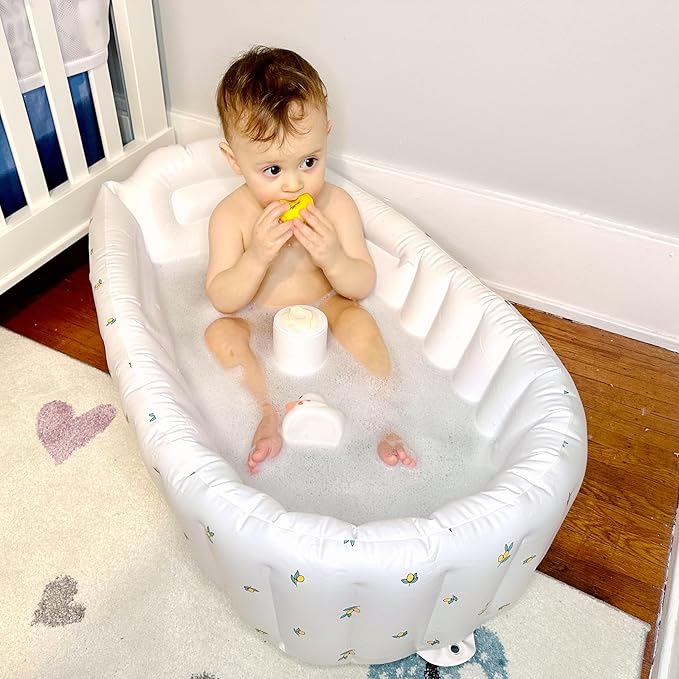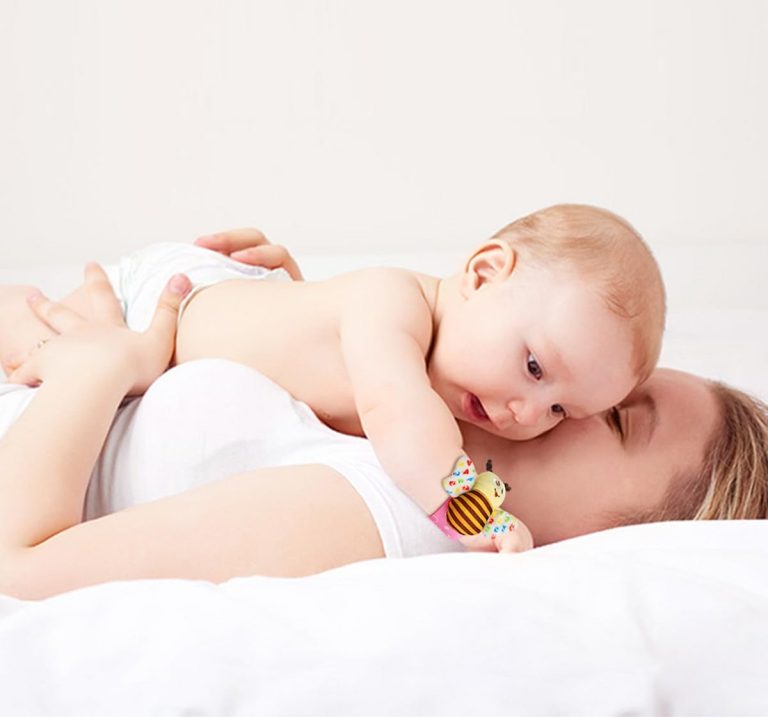Understanding and Managing Infant Colds Effectively
🌟 Introduction: Staying Calm Through Baby’s First Colds
Caring for a baby with a cold can feel overwhelming. Their tiny sniffles, raspy breathing, and fussiness tug at a parent’s heart, especially when they look uncomfortable but can’t yet explain what they’re feeling. Infant colds are incredibly common — most babies will experience six to eight colds in their first year alone.
The good news? Most colds are mild and resolve on their own within 7–10 days. With the right knowledge and gentle care strategies, parents can help ease symptoms, keep their baby comfortable, and know when professional help is needed.
This guide is designed to be the most comprehensive resource you’ll need, walking you through everything from causes and symptoms to safe remedies, prevention tips, and when to call the doctor.
🤧 What Causes Infant Colds?
Infant colds are almost always caused by viruses, not bacteria. The most common culprit is the rhinovirus, but other cold-causing viruses include respiratory syncytial virus (RSV), adenoviruses, and coronaviruses (not the same as COVID-19 in most cases).
❄️ Why Babies Catch Colds Easily
Parents are often surprised at how frequently their little ones come down with colds, especially during the first year of life. While it can feel concerning, there are several natural reasons why babies are especially vulnerable to the viruses that cause the common cold.
Immature immune system
A newborn’s body is still learning how to fight off infections. Their immune system is immature, meaning they haven’t yet built up the antibodies and defenses that older children and adults rely on. Because of this, even everyday viruses like the rhinovirus — which causes most colds — can take hold more easily. Over time, as babies are exposed to different germs, their immune systems strengthen, but in those early months, they are naturally more susceptible.
Close contact
Babies thrive on physical closeness. They are constantly snuggled, kissed, and passed from one loving set of arms to another. While this contact is vital for bonding and emotional growth, it also increases exposure to germs. A simple kiss from a relative with a mild cold, or holding hands with a sibling who just came home from school, can be enough to pass along a virus to a baby whose immune system isn’t yet ready to fight it off.
Exploration through touch and taste
By the time babies reach about six months old, curiosity takes over. They explore their environment primarily through touch and taste, putting their hands — and nearly every toy or household object they can reach — straight into their mouths. While this is a normal part of development, it also means germs have a direct path into their bodies, increasing the chances of catching colds.
Daycare settings
For families who use childcare, daycare environments expose babies to multiple children at once, many of whom may already be carrying common cold viruses. Because young children often have runny noses, coughs, and developing hygiene habits, viruses spread quickly in these group settings. This frequent exposure explains why babies in daycare tend to get more colds than those cared for at home.
Seasonal influences
Cold viruses spread more easily in the fall and winter months, when people spend more time indoors with less ventilation. Dry air also irritates nasal passages, making babies more susceptible.
👀 Recognizing Infant Cold Symptoms
Every baby is unique, and the way they react to illness can vary. Still, most colds in infants follow a fairly predictable pattern of symptoms. Learning to recognize these signs helps parents not only provide comfort but also distinguish between a mild cold and something more serious that may require medical attention.
Runny or Stuffy Nose
One of the first signs of a cold is a runny or congested nose. At the beginning, nasal discharge is usually clear and watery, but as the cold progresses it can become thicker and take on a yellow or greenish color. This change is normal and not necessarily a sign of bacterial infection. For babies, nasal congestion is particularly troublesome because they primarily breathe through their noses, making feeding and sleeping more difficult.
Sneezing
Sneezing is a baby’s natural reflex for clearing nasal passages. Frequent sneezing during a cold helps expel mucus and irritants, although it may look alarming to new parents. Sneezing by itself isn’t harmful and is actually an important way the body fights off germs, though it often goes hand in hand with a stuffy or runny nose.
Mild Cough
A mild cough is also common, usually caused by post-nasal drip when mucus runs down the back of the throat. This can irritate the airway, prompting small coughing spells. In most cases, the cough is not severe and gradually improves as the cold resolves. However, persistent, wheezy, or barky coughs may point to something more serious and should be checked by a pediatrician.
Low-Grade Fever
Sometimes, a cold comes with a low-grade fever, generally defined as anything under 100.4°F (38°C) in infants over 3 months. A mild fever is actually a sign that the immune system is working hard to fight the infection. While it may cause extra fussiness or lethargy, a low fever alone is not usually a cause for alarm unless it persists or rises.
Irritability or Fussiness
Babies with colds are often more irritable or fussy than usual. Congestion makes it harder to feed and breathe comfortably, which can quickly lead to frustration. Even the most easygoing babies may cry more often, need extra cuddles, or want to be held constantly while they’re feeling unwell.
Reduced Appetite
Another common symptom is a reduced appetite. Because congestion interferes with a baby’s ability to suck effectively, they may pull away from the breast or bottle more often or eat smaller amounts at each feeding. While this can be frustrating, it’s usually temporary and improves as the congestion clears. Parents should, however, keep an eye on hydration by monitoring wet diapers.
Sleep Disruption
Finally, colds often bring sleep disruption. Stuffy noses, coughing, or general discomfort can cause babies to wake more frequently at night or nap for shorter periods. While disrupted sleep is difficult for both baby and parents, maintaining soothing routines and offering extra comfort can help.
🔍 Tip: Not every sneeze or stuffy nose automatically points to a cold. Allergies, teething, or dry indoor air can cause similar symptoms. Always look at the complete picture of your baby’s health — including feeding patterns, fever, breathing, and overall behavior — before assuming it’s just a cold.
💊 Infant Cold Medicine: What Parents Need to Know
When your baby is struggling with congestion, a runny nose, or a nagging cough, it’s natural to want to give them something to ease their discomfort. Many parents wonder if over-the-counter cold medicines could be the solution. The truth, however, is clear: these medicines should not be used for infants under 2 years old.
❌ Why Cold Medicines Aren’t Safe for Babies
Cold and cough remedies that are commonly sold for older children or adults are not proven effective in infants. Research shows that syrups, decongestants, and expectorants do little to relieve symptoms in babies whose airways and immune systems are still developing.
What’s more, these medicines can cause serious side effects. Reactions may include drowsiness, rapid heart rate, agitation, or even life-threatening complications if the dosage is incorrect. Because babies are so small, even a tiny miscalculation in dosage can have harmful consequences.
The American Academy of Pediatrics (AAP) is very clear: parents should never give cough or cold medicines to babies under 2 years old. For toddlers and older children, dosing should only be given under a doctor’s supervision.
🚫 Medicines to Avoid
Parents should avoid the following at all costs:
-
Adult cold remedies: Cutting an adult dose to “baby size” is unsafe. Babies metabolize medications differently, making it impossible to predict the effect.
-
Aspirin: This is especially dangerous, as it has been linked to Reye’s syndrome, a rare but potentially life-threatening condition that affects the brain and liver.
-
Decongestants: While they may seem helpful, decongestants can cause jitters, elevated blood pressure, and heart rhythm problems in infants.
✅ Safe Alternatives
While cold medicine is off-limits, there are still gentle and effective ways to help your baby feel more comfortable:
-
Saline drops or spray: A few drops of saline into each nostril can moisten dry passages and loosen stubborn mucus, making it easier to suction out.
-
Bulb syringe or nasal aspirator: When paired with saline, these tools gently clear nasal passages, helping your baby breathe easier and feed more comfortably.
-
Infant acetaminophen or ibuprofen: These may be used to reduce fever or discomfort, but only under the guidance of your pediatrician, who will provide the correct dosage.
🚨 Rule of Thumb: Never give your baby any medication — even common pain relievers — without first consulting your pediatrician.
🌿 Safe Ways to Relieve Infant Cold Symptoms
Because medicines are not an option for babies, treatment focuses on comfort and supportive care. These methods don’t cure the cold but can ease symptoms while your baby’s immune system fights off the virus.
-
Use a Bulb Syringe or Nasal Aspirator
Congestion is one of the hardest parts of an infant cold because babies can’t blow their noses. A bulb syringe or modern suction device can gently remove mucus. Saline drops beforehand help loosen the mucus, making the process more effective and less uncomfortable. -
Run a Humidifier
Dry indoor air worsens congestion. Running a cool-mist humidifier in your baby’s room helps keep nasal passages moist, reduces irritation, and eases breathing. To keep it safe, clean the unit daily to prevent mold or bacteria buildup. -
Keep Baby Hydrated
Fluids are critical during illness. Whether through breastfeeding or formula, hydration helps thin mucus, prevents dehydration, and keeps energy levels steady. If your baby refuses long feeds, try offering smaller, more frequent ones. -
Elevate Baby’s Head Slightly
When supervised, a gentle incline can improve airflow and reduce congestion. Never place pillows inside the crib, as this increases suffocation risk. Instead, place a small wedge under the crib mattress to create a safe, slight elevation. -
Provide Extra Comfort
Sometimes the best remedy is simply comfort and closeness. Holding, rocking, or using skin-to-skin contact can soothe fussiness. Keeping your baby warm and reassured reduces stress, which in turn helps the body heal more efficiently.
🚨 When to Call the Doctor
Most colds are mild and pass on their own, but there are situations where medical help is essential. Seek care right away if your baby:
-
Is under 3 months old and develops a fever of 100.4°F (38°C) or higher.
-
Shows labored breathing, such as flaring nostrils, grunting, wheezing, or unusually fast breathing.
-
Has a severe cough or persistent wheezing that doesn’t improve.
-
Refuses to feed, has fewer wet diapers, or shows signs of dehydration such as a sunken soft spot or dry mouth.
-
Develops a high fever that persists or symptoms that worsen after several days instead of improving.
👩⚕️ Trust your instincts: Parents know their babies best. If something feels “off” — whether your baby seems unusually lethargic, fussy, or struggling — don’t hesitate to call your pediatrician.
✨ In short: cold medicine is not safe for infants, but there are plenty of gentle remedies and supportive care strategies that can help them through the illness. Staying calm, watching for warning signs, and consulting your doctor when needed will keep your little one safe and comfortable until the cold passes.
🍼 Preventing Infant Colds
While it’s impossible to protect your baby from every germ, there are many practical steps you can take to lower the risk of colds and keep your little one healthier throughout the year. Babies’ immune systems are still developing, which makes them more vulnerable, but with a few proactive habits, parents can reduce exposure and strengthen natural defenses.
Handwashing
One of the simplest yet most powerful defenses against infant colds is regular handwashing. Always wash your hands before handling your baby, especially after being in public places, touching your face, or preparing food. Handwashing removes germs that could easily be transferred when holding, feeding, or cuddling your baby. If soap and water aren’t available, an alcohol-based sanitizer is a helpful backup — though it should never be used directly on your baby’s skin.
Limit Exposure
Another way to protect your infant is by limiting close contact with people who are sick. Friends and relatives may be eager to visit or hold your baby, but if they have a cough, cold, or even mild sniffles, it’s best to wait until they are fully well. This is especially important in the first few months when your baby’s immune system is at its weakest. In crowded places like daycare centers or family gatherings, extra caution goes a long way.
Clean Environment
Keeping your baby’s surroundings clean helps reduce the spread of germs. Regularly disinfect items your baby uses often, such as toys, pacifiers, bottles, and surfaces like changing tables. Babies frequently put objects in their mouths, so keeping those items germ-free is crucial. Even simple practices like washing stuffed animals and wiping down play mats can make a big difference.
Vaccinations
Staying up to date with recommended vaccinations is another essential step. Vaccines don’t prevent the common cold, but they protect against other serious respiratory infections, such as flu or whooping cough, which can sometimes be mistaken for colds in the early stages. By keeping your baby current on their shots, you’re giving them stronger defenses against illnesses that could complicate or worsen cold symptoms.
Breastfeeding (if possible)
If breastfeeding is an option for your family, it provides a unique layer of protection. Breast milk contains antibodies that help babies fight infections by strengthening their developing immune systems. These antibodies are especially valuable in the first months of life, offering targeted defense against germs the mother has already been exposed to. While breastfeeding doesn’t make a baby immune to colds, it can reduce the frequency and severity of illnesses.
🛌 Supporting Baby’s Recovery
Recovery takes time. Here’s how to help your baby bounce back:
-
Encourage rest: Babies may sleep more when fighting illness.
-
Maintain routines: Stick to familiar feeding and nap times for comfort.
-
Monitor progress: Track symptoms and improvements. Most colds resolve in 7–10 days.
-
Be patient: Even after symptoms fade, coughs and mild congestion may linger.
❓ Frequently Asked Questions
Q: Can I give my baby honey for a cough?
A: No. Honey should not be given to babies under 12 months due to the risk of botulism.
Q: Are teething and colds connected?
A: Teething doesn’t cause colds, but symptoms like drooling and gum irritation can make babies more vulnerable to germs.
Q: Can older siblings bring home colds?
A: Yes, school-aged siblings are common carriers. Emphasize handwashing and hygiene for the whole family.
🌟 Conclusion
While colds are an inevitable part of infancy, they don’t have to overwhelm you. With safe, gentle remedies and a clear understanding of when to seek medical advice, you can care for your baby confidently.
Remember: infant cold medicine is generally not recommended. Instead, focus on hydration, comfort, and monitoring symptoms. Most importantly, trust your instincts as a parent. With the right care and support, your baby will usually recover within a week or two — and you’ll gain confidence in navigating those sniffles and sneezes.






